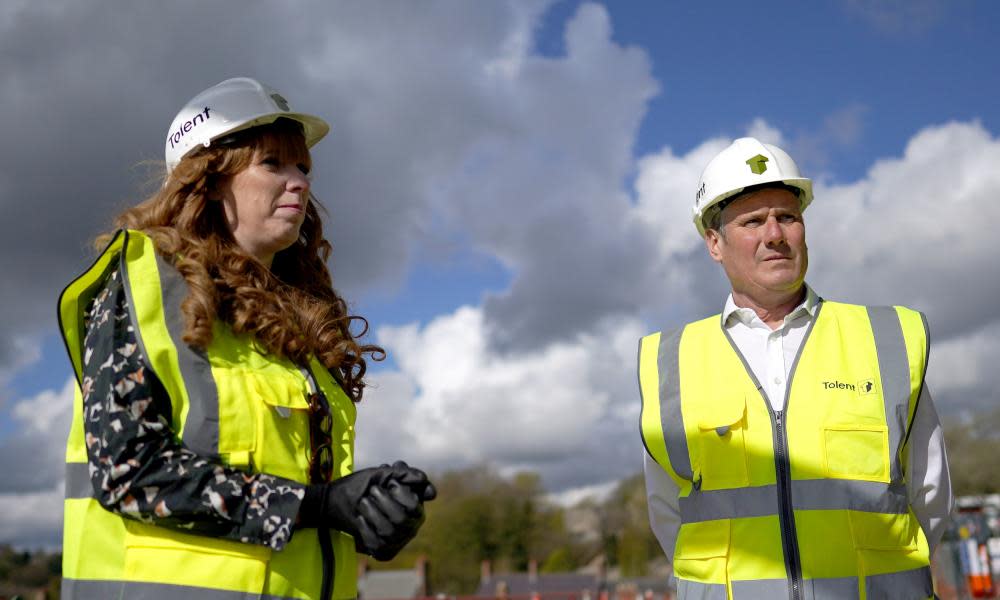Angela Rayner’s sacking risks reopening Labour’s wounds

When Angela Rayner secured Labour’s deputy leadership, her authentic working-class credentials and respect from the party’s left instantly made her an important figure in Keir Starmer’s vow to reunite after the internal warring under Jeremy Corbyn. Her sacking as party chair, however, risks reopening Labour wounds that are far from healed.
While originally regarded as being on the party’s left flank when she entered parliament in 2015, Rayner has already shown some adept political skill in navigating the years of feuding.
While she was seen as on the party’s left, she was also not regarded as a staunch Corbynite. Even as Corbyn’s shadow education secretary, she managed to dodge much of the warring.
Many figures in the party actually regard her politics as much more steeped in the traditional values of the trade union movement – hardly surprising, given her time working for the Unison union, which led her to the Labour party.
However, her reputation as someone who can speak with authority and authenticity about the struggles faced by the low-paid pre-date her union days. Rayner left school in Stockport with no qualifications, after becoming pregnant at 16. She became a care worker before working for Unison.
While not part of the Corbyn inner circle, Rayner did win significant support on the left during the deputy leadership contest, pledging to “make the case for everyday socialism rooted in people’s lives”.
During her time as shadow education secretary, she also drew up plans for a “national education service” comparable to the NHS. Her plans also caused controversy, however. When she backed abolishing Ofsted, party figures and the education sector more widely feared that an alternative model for monitoring schools had not been fully thought through.
Rayner, the MP for Ashton-under-Lyne, could have run for the Labour leadership herself when Corbyn stood down. However, she opted to leave the path open for her friend Rebecca Long-Bailey, the favoured candidate for the left. Her allies say that despite claims she has briefed against figures in Starmer’s office, she has shown the same level of loyalty to him – despite some trying circumstances.
When the Observer interviewed Rayner during the local election campaign, she acknowledged some Labour members wanted more passion and criticism of the Tory government from Starmer, but she presented a united front.
“Myself, Keir and our team are saying to people: we understand you rejected us in December 2019 and we’re listening now, and we’re offering you what we think is in the interest of the British people – that’s to work together.”
Behind the scenes, there were tensions. While Rayner had the title of campaign coordinator, her allies said that in reality she had been given little or no control over the local elections, with all key decisions coming from the leader’s office.
Some believed that even weeks before the results came in, she was being set up to take the blame for a poor outcome. Some close to Starmer continued to believe she was behind reports criticising the performance of Starmer’s political director, the former Labour MP Jenny Chapman. Some senior figures also blamed her for the botched and messy process for selecting Labour’s candidate for Liverpool mayor.
Related: The Conservatives’ win in Hartlepool is a triumph of political rebranding | Carl Shoben
Starmer allies insist that Rayner will remain a senior part of the team and so has not been “sacked” – but the manner in which her removal as party chair has been handled will leave bad blood.
Rayner is not a good opponent to choose. While she did not emerge as the left’s leadership candidate, her treatment will see her gain sympathy among the party’s still numerous leftwing membership.
The fact Rayner remains deputy leader is also significant. It is an elected position, which gives her an independent mandate from party members. As Corbyn found out when he repeatedly came into conflict with his deputy Tom Watson, it can be a highly important role from which she can build her own power base.
There were suggestions on Saturday night that Starmer may want to use Rayner’s ability to call out Tory privilege by shifting her to shadow Commons leader, which would see her take on Jacob Rees-Mogg in the Commons.
It could prove to be a job she excels at and enjoys, but the manner of her sacking as party chair has piled more pressure on Starmer even as he was facing his first major setback as party leader.

 Yahoo News
Yahoo News 
